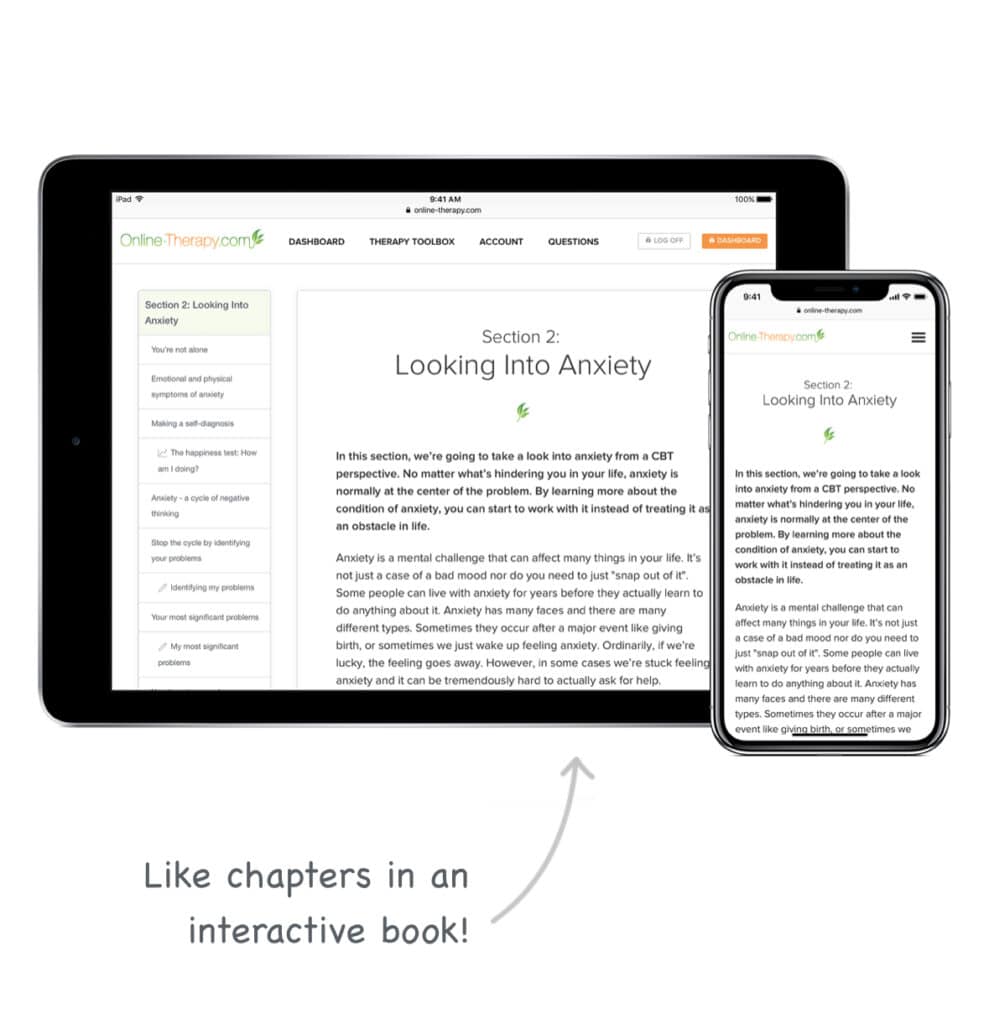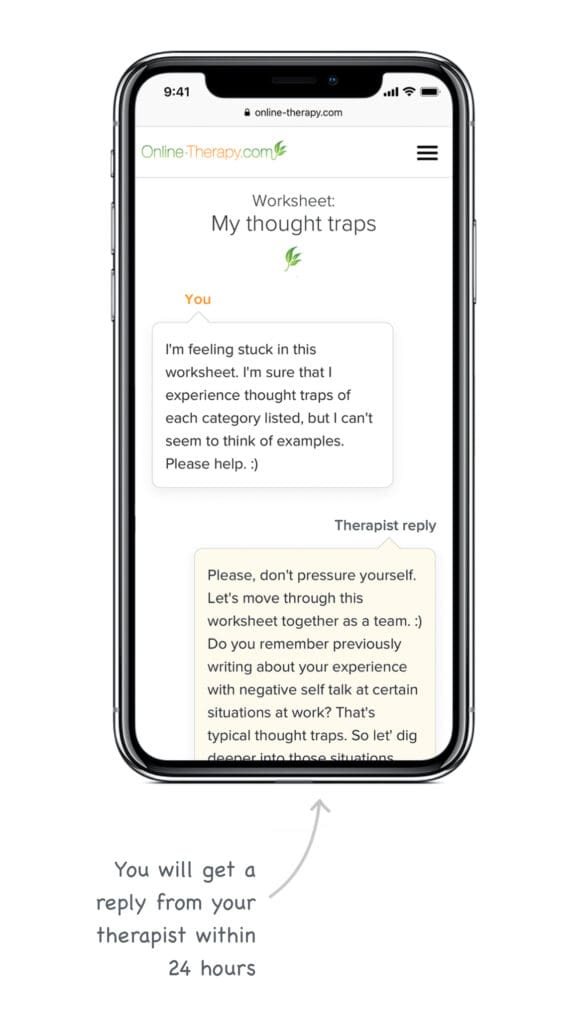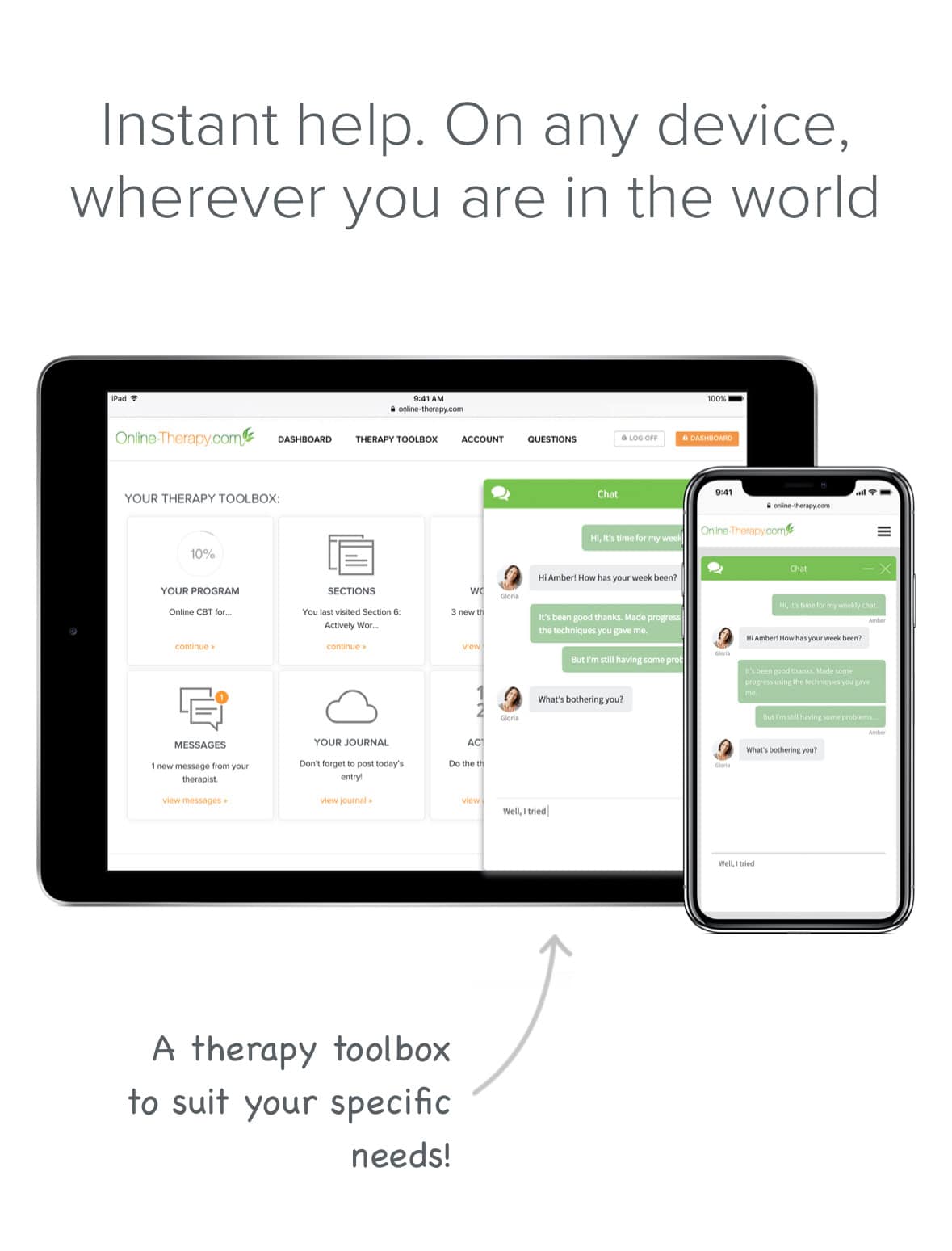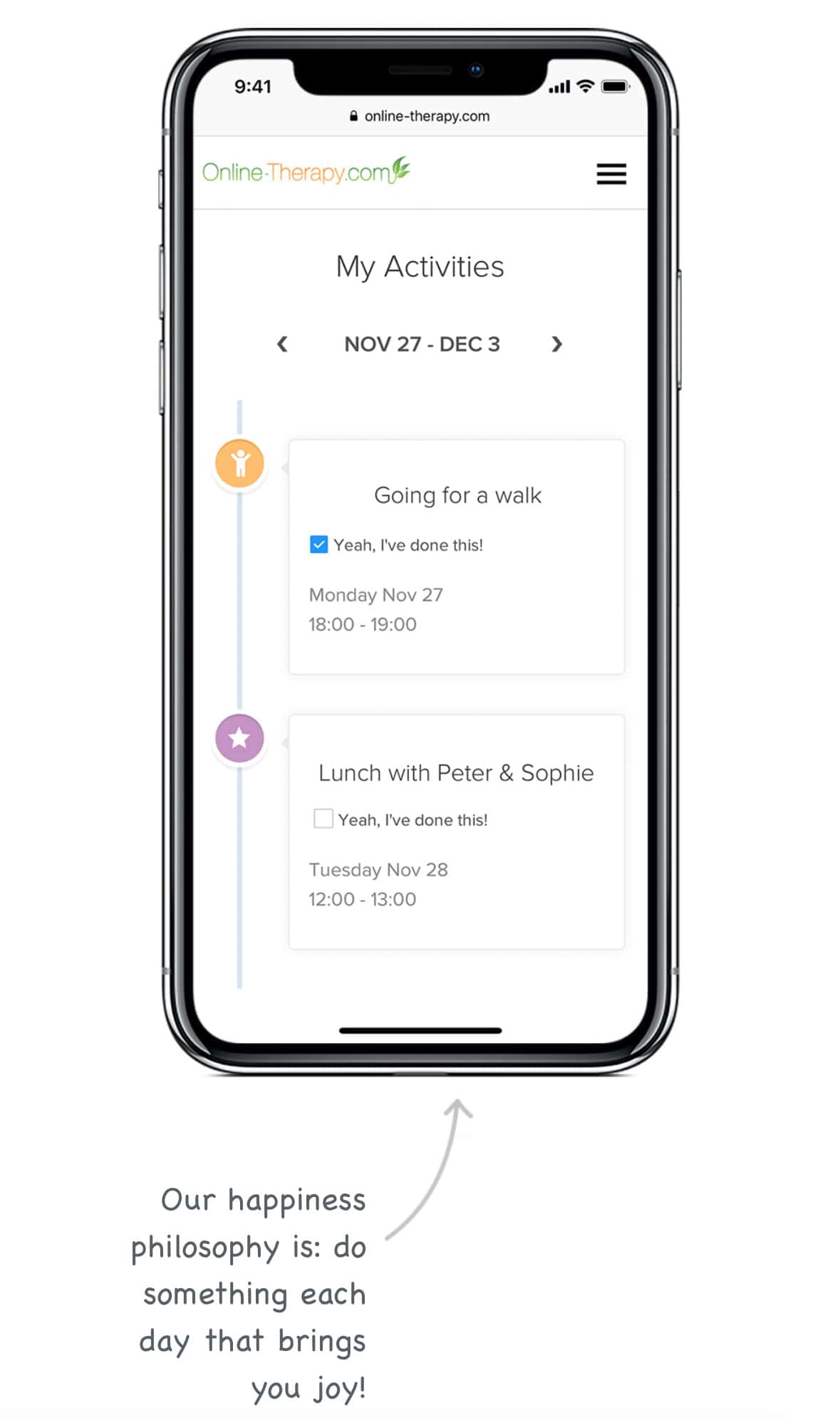9 Benefits of Online Therapy

Online therapy, also known as teletherapy or e-therapy, has become increasingly popular in recent years.
This surge in popularity can be attributed to advancements in technology, greater awareness of mental health issues, and the global shift toward remote services due to the COVID-19 pandemic.
As more people turn to online therapy, it’s essential to understand the myriad benefits it offers.
This article explores the advantages of online therapy, highlighting how it can be a valuable alternative or supplement to traditional in-person therapy.
If you’re considering online therapy, Online-Therapy.com is a fantastic platform that offers numerous benefits.
Accessibility and Convenience
One of the most significant benefits of online therapy is its accessibility. Traditional therapy often requires clients to travel to a specific location, which can be challenging for those living in rural or remote areas.
Online therapy eliminates physical limitations, making mental health treatment services accessible to a broader population.
This is particularly beneficial for individuals who live in areas with a shortage of mental health professionals.
Convenience is another major advantage. Online therapy allows clients to schedule sessions at times that fit their busy lives.
This flexibility is crucial for people juggling work, family, and other responsibilities.
With online counseling, there is no need to take time off work or arrange childcare, as sessions can be conducted from the comfort of one’s home.
This convenience can reduce the stress and logistical challenges often associated with attending therapy.
Reduced Stigma
Despite growing awareness and acceptance of mental health issues, stigma remains a barrier for many seeking help.
Online therapy can mitigate this problem by providing a more private and discreet way to access mental health services.
Clients can engage in therapy without worrying about being seen entering a therapist’s office or encountering someone they know.
The anonymity and privacy of online therapy can make it easier for individuals to seek help.
This is particularly important for those who may feel embarrassed or ashamed about their mental health concerns.
By reducing the fear of judgment, online therapy encourages more people to take the first step toward seeking the support they need.
Comfort and Familiarity
For many individuals, the idea of opening up to a stranger in an unfamiliar environment can be daunting.
Online therapy allows clients to participate in sessions from their own homes, where they often feel more comfortable and at ease.
This sense of familiarity can help clients relax and be more open during their sessions, potentially leading to more effective therapeutic outcomes.
Being in a familiar environment can also be beneficial for individuals with anxiety, agoraphobia, or other conditions that make leaving the house challenging.
Online therapy provides a safe and controlled setting for these clients to engage in treatment without exacerbating their symptoms.
Cost-Effectiveness
Online therapy can be more cost-effective than traditional in-person therapy.
Many online therapy platforms offer lower rates than those charged by brick-and-mortar practices, making mental health conditions services more affordable.
Additionally, clients save money on transportation costs, childcare, and other expenses associated with attending in-person sessions.
Some insurance companies also cover online therapy, further reducing the financial burden on clients.
The combination of lower fees and potential insurance coverage makes online therapy an attractive option for those who might otherwise be unable to afford traditional therapy.
Increased Options and Availability

The rise of online therapy has led to an increase in the availability of mental health professionals.
Clients are no longer limited to online mental health professionals in their immediate geographic area and can choose from a wider pool of practitioners.
This expanded selection allows clients to find a therapist who best fits their needs and preferences, whether it’s a specific therapeutic approach, expertise in a particular issue, or simply a good personality match.
The increased availability of therapists also means that clients may be able to schedule appointments more quickly, reducing wait times for treatment.
This is especially important for individuals in crisis or those experiencing acute mental health issues who need immediate support.
Continuity of Care
Life can be unpredictable, and circumstances such as moving to a new city, traveling for work, or dealing with a health condition can disrupt traditional therapy.
Online therapy offers continuity of care, allowing clients to maintain regular sessions regardless of their location or situation.
This consistency is crucial for maintaining therapeutic progress and ensuring that clients receive ongoing support.
Online therapy can also be a valuable resource for individuals who require long-term treatment.
For example, someone undergoing treatment for a chronic mental health condition may benefit from the continuous support that online therapy provides, even during periods of transition or instability.
Innovative Therapeutic Approaches

The digital nature of online therapy enables the integration of innovative therapeutic tools and techniques.
Many online platforms incorporate features such as messaging, video conferencing, and digital journaling, which can enhance the therapeutic experience.
These tools allow for more frequent communication between sessions, providing clients with additional support and accountability.
Moreover, online therapy can leverage digital resources such as educational videos, interactive exercises, and self-help modules.
These resources can complement traditional therapy methods and provide clients with valuable information and skills to manage their mental health.
Anonymity and Reduced Fear of Judgment
For some individuals, the fear of judgment can be a significant barrier to seeking therapy. Online therapy offers a level of anonymity that can help alleviate this fear.
Clients can choose to participate in therapy sessions without revealing their full identity, using only a first name or a pseudonym if they prefer.
This anonymity can make it easier for individuals to open up about sensitive or deeply personal issues.
Knowing that they can maintain a degree of privacy can encourage clients to be more honest and forthcoming, leading to more effective therapeutic outcomes.
Flexibility in Communication

Online therapy offers various modes of communication, including video calls, phone calls, live chat, and asynchronous messaging.
This flexibility allows clients to choose the method that best suits their needs and preferences.
For example, some individuals may feel more comfortable expressing themselves in writing rather than speaking, making messaging or email-based therapy an ideal option.
The availability of different communication modes also means that clients can receive support even when face-to-face interaction is not possible.
For instance, someone experiencing a mental health crisis outside of regular office hours can send a message to their therapist and receive a timely response.
Tailored Treatment Plans
Online therapy platforms often use advanced algorithms and data analysis to match clients with therapists who specialize in their specific needs.
This personalized approach ensures that clients receive tailored treatment plans that address their unique challenges and goals.
Furthermore, the use of technology allows therapists to track clients’ progress more effectively.
Digital tools can collect data on clients’ mood, behavior, and treatment adherence, providing therapists with valuable insights to adjust treatment plans as needed.
This data-driven approach can lead to more precise and effective interventions.
Support for Marginalized Communities
Online therapy can be especially beneficial for marginalized communities, including LGBTQ+ individuals, people of color, and those with disabilities.
These groups often face additional barriers to accessing mental health care, such as discrimination, cultural insensitivity, and lack of accessible facilities.
Many online therapy platforms prioritize inclusivity and cultural competence, offering services tailored to the needs of diverse populations.
Clients can search for therapists who share their cultural background, have expertise in working with specific communities, or provide therapy in their preferred language.
This level of customization can help clients feel more understood and supported in their therapeutic journey.
Environmental Benefits
Finally, online therapy has environmental benefits. By reducing the need for clients and therapists to travel to and from appointments, online therapy contributes to lower carbon emissions.
This eco-friendly aspect aligns with the growing awareness of and commitment to environmental sustainability.
Additionally, online therapy reduces the need for physical office space and related resources, such as electricity and paper.
The shift toward digital therapy aligns with broader efforts to reduce the environmental impact of healthcare services.
Why Choose Online-Therapy.com?

Given the numerous benefits of online therapy, finding the right platform to start your journey is crucial.
Online-Therapy.com is a leading provider of online therapy services, offering a comprehensive and user-friendly platform designed to support your mental health needs.
Here are some reasons why Online-Therapy.com stands out:
Expert Therapists
Online-Therapy.com connects you with licensed and experienced therapists who are experts in various fields of mental health.
Flexible Communication
Choose from video sessions, live chat, or messaging to communicate with your therapist in the way that feels most comfortable for you.
Holistic Approach
The platform offers additional resources such as worksheets, journaling, and yoga videos to complement your therapy sessions.
Affordable Plans
Online-Therapy.com provides various subscription plans to fit different budgets, making quality mental health care accessible to more people.
24/7 Access
Access therapeutic tools and resources anytime, ensuring you have support whenever you need it.

Final Verdict – Benefits of Online Therapy
The benefits of online therapy are numerous and multifaceted. Its accessibility, convenience, and cost-effectiveness make it an appealing option for many individuals seeking mental health support.
The ability to receive therapy from the comfort of one’s home, combined with the potential for greater privacy and reduced stigma, encourages more people to seek help.
Online therapy also offers innovative therapeutic approaches, tailored treatment plans, and increased options for clients to find the right therapist.
Its flexibility in communication and continuity of care make it a valuable resource for those with unpredictable schedules or long-term treatment needs.
As technology continues to evolve, the quality and reach of online therapy will likely improve, making it an increasingly viable and effective option for mental health care.
By embracing online therapy, we can work toward a future where mental health support is accessible, inclusive, and tailored to the needs of all individuals.
If you’re ready to start your journey toward better mental health, consider exploring Online-Therapy.com and take the first step today.









